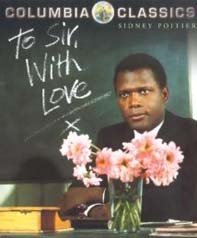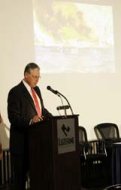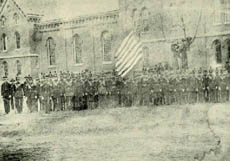Teaching History with Heart at Luzerne County Community College
Written by Tony Mussari, Sr.
Edited by Kitch Loftus-Mussari
Photographs by Kitch Loftus-Mussari
Copyright Mussari-Loftus Associates, LTD 2013
All Rights Reserved
History cannot give us a program for the future, but it can give us a fuller understanding of ourselves, and of our common humanity, so that we can better face the future. Robert Penn Warren
My journey to the 22nd Annual History of Northeastern Pennsylvania Conference at Luzerne County Community College began in 1967 in a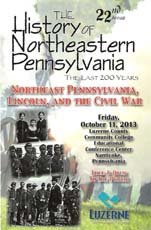 classroom at the University of Iowa in Iowa City. I was listening to a lecture, and I thought to myself some pictures, film or sound would greatly enhance what the teacher was trying to convey.
classroom at the University of Iowa in Iowa City. I was listening to a lecture, and I thought to myself some pictures, film or sound would greatly enhance what the teacher was trying to convey.
A few weeks later I was overwhelmed by the powerful message of gratitude in Lulu’s classic song and Sidney Portier’s magnificent performance of Mark Thackeray in To Sir With Love. That movie and its title song forever changed the way I looked at teachers and teaching. It gave me a model, it provided a method, and it reminded me that at the core of every effective teacher is the ability to awaken in the student a love of learning by treating students like adults.
As with everything in life, the film was not without its critics. Some dismissed it as sentimental non-realism.
I embraced the film. For me, Mark Thackeray gave me a roadmap to follow. He was idealistic, demanding, honest and always prepared. He cared about his students. The most important lesson he taught by his example. Respect must be earned with discipline, hard work and gratitude. He refused to accept marginal work and boorish behavior. No one was entitled to anything. Everyone was challenged and encouraged to be the best that they could be.
To enrich the learning experience, Thackeray took his students outside the classroom. Those scenes gave this 25-year old teacher an example of experiential learning at its best.
Over the years I embraced and refined the principles of experiential learning. Whenever I could, I took my students outside the classroom to experience things in real time. The night before I left Iowa to accept a teaching position in my home town, several students who had participated in those trips, pasted a huge crepe paper heart on my apartment door. The inscription read: “To Sir with Love.”
Fast forward 46 years. Kitch and I are making our way to the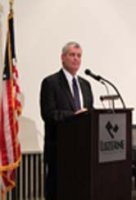 conference center auditorium at the school affectionately known as “LCC.” The first person I met after we entered the building was a distinguished looking man in a dark suit. When our eyes met, a smile filled his face, and then, as I recall the moment, he spoke these words. “Hello Dr. Mussari, I am Tom Leary. You taught me history in 1972. I loved that class. It made me want to become a teacher.”
conference center auditorium at the school affectionately known as “LCC.” The first person I met after we entered the building was a distinguished looking man in a dark suit. When our eyes met, a smile filled his face, and then, as I recall the moment, he spoke these words. “Hello Dr. Mussari, I am Tom Leary. You taught me history in 1972. I loved that class. It made me want to become a teacher.”
Tom Leary is the President of Luzerne County Community College.
During his welcoming remarks, Dr. Leary made reference to his days in my classroom.
For an old teacher, it doesn’t get any better than that.
During the events that followed, Kitch and I were treated to a cornucopia of historical treasures.
Dr. Randall Miller, a Civil War and Lincoln scholar, got the attention of everyone in the room with a keynote address that was practically perfect in every way. His remarks were rooted in hours of productive research. His comments were perfectly written, and he emphasized the importance of the human dimension in our national story. His portrayal of President Lincoln was thoughtful, realistic and compelling. He neither deified nor demonized this man who literally saved our union. He revealed his artful political astuteness and his caring, compassionate leadership.
Dr. Bill Kashatus, the person who organized the conference, provided the audience with many insights into Luzerne County and the northern coalfield during the Civil war. He highlighted the importance of coal and iron in the Northern war effort, and he did not shy away from a discussion of the many disturbances that took place when a mandatory draft was established to bolster the Union Army and suppress the Southern rebellion.
Mark Kahn a Civil War re-enactor, dressed in his Northern uniform and surrounded with artifacts of the war, painted a picture of what it was like to be a member of the 143rd Pennsylvania Regiment. Kahn enthusiastically described conditions on the battlefield. He also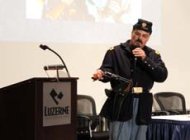 described the long hours of preparation and the many ways both positive and negative soldiers passed time while they were in camp.
described the long hours of preparation and the many ways both positive and negative soldiers passed time while they were in camp.
Martha Pezzino walked to the podium at 1:30 p.m. to tell the story of women in the Civil War. Martha teaches history at Luzerne County Community College. Several of her students were in the audience during her presentation. Her PowerPoint presentation provided a collage of images of women in the Civil War, and her narrative contained rich stories of pathfinders who paved the way for full citizenship and equality for women.
Later in the afternoon Jeff Schultz and Clark Switzer shared valuable insights about making history come alive for students.
Schultz teaches history at LCC. His presentation could have been titled “How to Reach Students between the Ages of 18 and 80.” To do this effectively he uses newspapers, photos, graphic novels, animated battle websites, slang, music, reenactments and maps.
Clark Switzer teaches history at Wyoming Seminary. He tries to reach the hearts and souls of his middle school students in similar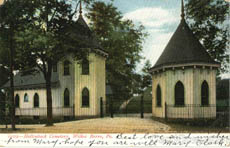 ways. He believes that history is never black or white. For him it’s all about one question, “What actually happened?” To answer this question, he uses resources like artifacts, cemeteries, living historians and movies. He incorporates stories about the role Luzerne County citizens played in the Civil War, and he asks his students to answer questions about that time and place. For example, what would they do if they were faced with what their ancestors faced during the Civil War?
ways. He believes that history is never black or white. For him it’s all about one question, “What actually happened?” To answer this question, he uses resources like artifacts, cemeteries, living historians and movies. He incorporates stories about the role Luzerne County citizens played in the Civil War, and he asks his students to answer questions about that time and place. For example, what would they do if they were faced with what their ancestors faced during the Civil War?
Our contribution to the conference was a screening of Walking into the Light at Gettysburg. The film is a story about the transformational power of an experiential learning trip to Gettysburg. It was our small contribution to Bill Kashatus’s big event.
October 11, 2013, was a day of community, a day of understanding, a day of hope and a day of good storytelling.
Thank you, Luzerne County Community College for hosting the event.
Thank you, Luzerne County Historical Society for co-sponsoring the conference.
Thank you, Bill Kashatus for making it happen.
The conference did not give us a program for the future, but it did give us a fuller understanding of ourselves, and of our common humanity, so that we can better face the future.
Please provide feedback to:
tony.mussari@gmail.com
